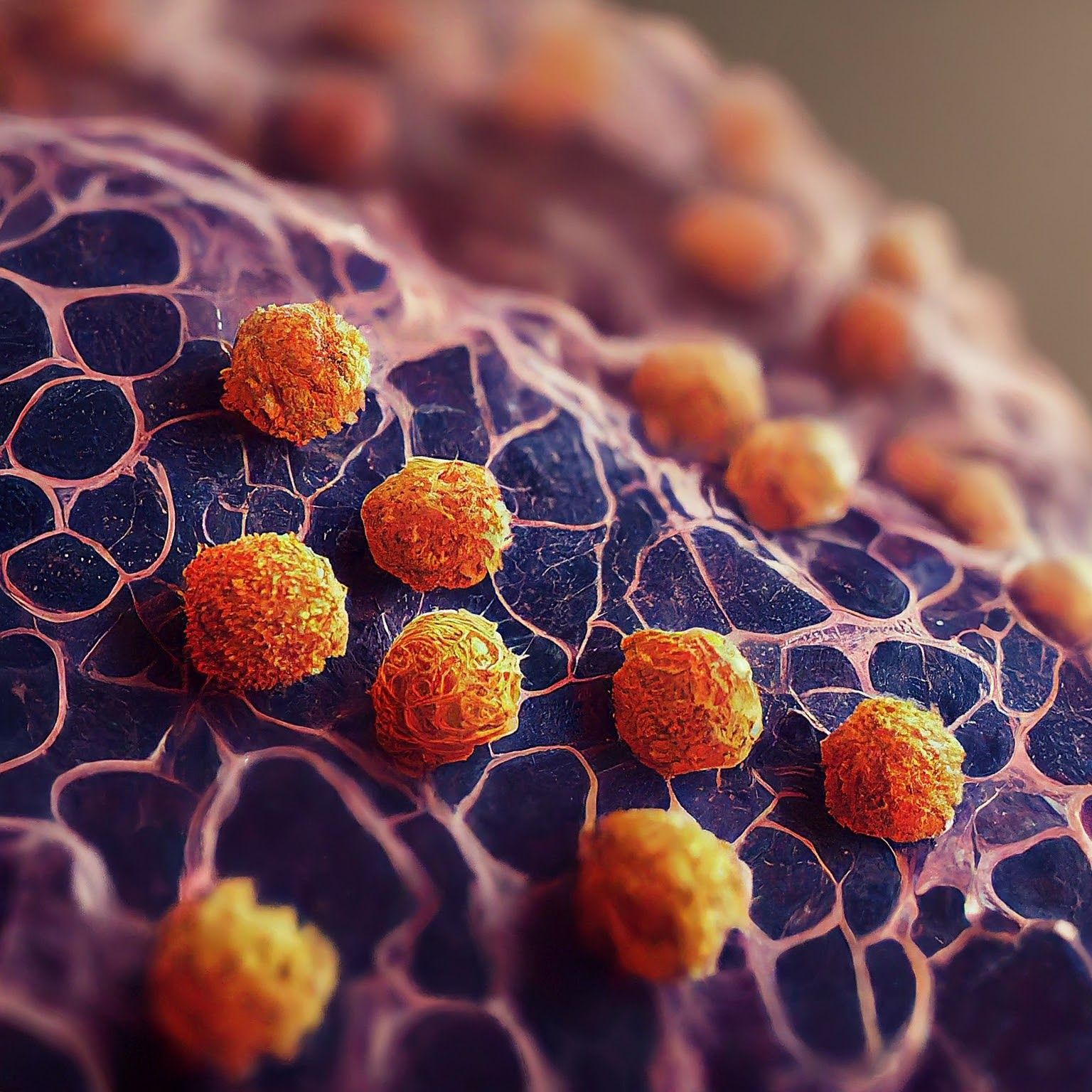Neoadjuvant/Adjuvant Durvalumab Scores FDA Approval in Resectable NSCLC
The FDA-approved regimen is for neoadjuvant durvalumab plus chemotherapy followed by adjuvant durvalumab in patients with resectable non–small cell lung cancer.
Microscopic image of non-small cell lung cancer - Generated with Google Gemini AI

- The FDA approved durvalumab (Imfinzi) with platinum-containing chemotherapy in patients with resectable non–small cell lung cancer (NSCLC) without EGFR mutations or ALK rearrangements.
- This approval is supported by the phase 3 AEGEAN trial (NCT03800134).
- Durvalumab led to notable improvements in event-free survival (EFS) vs placebo.
Durvalumab with platinum-containing chemotherapy as neoadjuvant treatment, followed by single-agent durvalumab following surgery is now an FDA-approved treatment option for patients with resectable NSCLC without EGFR mutations or ALK rearrangements.1
The decision is supported by data from the AEGEAN trial, a randomized, double-blind study that evaluated 802 patients with previously untreated squamous or nonsquamous, stage IIA to IIIB NSCLC. In the durvalumab arm, the median EFS by blinded independent central review was not reached (95% CI, 31.9-not estimable [NE]) vs 25.9 months (95% CI, 18.9-NE) with placebo (HR, 0.68; 95% CI, 0.53-0.88; P =.0039). Durvalumab also led to a pathologic complete response (pCR) rate of 17% (95% CI, 13%-21%) vs 4.3% (95% CI, 2.5%-7%) with placebo. EFS and pCR benefits were observed regardless of cancer staging or PD-L1 expression.2
Overall survival data were not tested for statistical significance at the time of analysis.1
Regarding safety, the most common adverse events (AEs) occurring in at least 20% of patients were anemia, nausea, constipation, fatigue, musculoskeletal pain, and rash.1 AEs deemed grade 3 or 4 were observed in 42.4% of patients in the durvalumab arm and 43.2% in the placebo arm.2
The recommended dosage is 1500 mg of durvalumab every 3 weeks as neoadjuvant therapy and every 4 weeks as adjuvant therapy for patients with a body weight of 30 kg or more and 20 mg/kg for patients weighing under 30 kg, and durvalumab should be administered before chemotherapy when they are given on the same day.1
In July 2024, the FDA’s Oncologic Drug Advisory Committee met to discuss the supplemental biologic license application of durvalumab in this patient population. The Committee examined key issues arising from the AEGEAN trial and assessed whether an additional trial needed to be conducted to clarify the contribution of the treatment phase for the durvalumab perioperative regimen prior to approval. This discussion was due to the uncertainty around the need for both phases of treatment.
The results from AEGEAN were evaluated to determine if they sufficiently supported the proposed use of durvalumab in both neoadjuvant and adjuvant settings. The Committee voted unanimously that new trial design proposals include adequate trial assessments of the contribution of each phase.2
Findings from AEGEAN presented at the 2023 IASLC World Conference on Lung Cancer showed that this durvalumab regimen did not provide a clear clinical benefit in patients with early-stage NSCLC harboring an EGFR mutation.3







